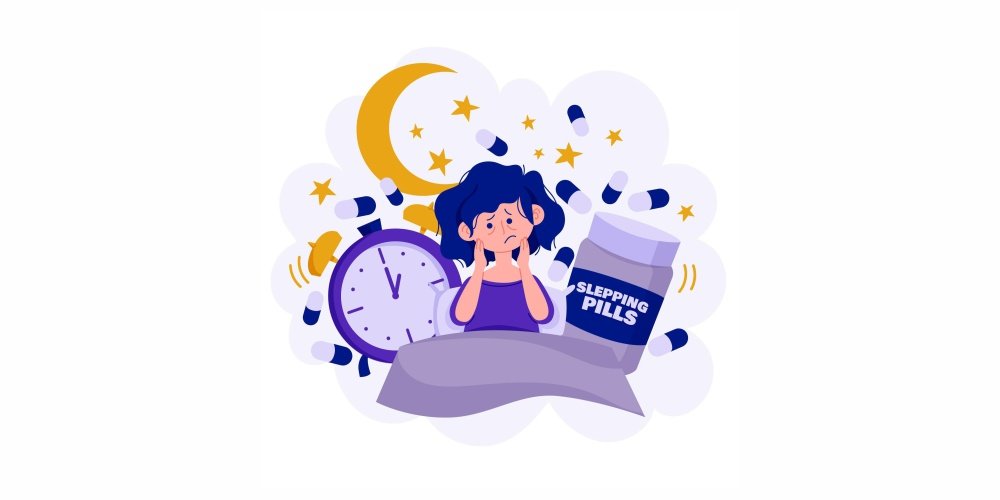Melatonin, often referred to as the “sleep hormone,” is a naturally occurring hormone produced by the pineal gland in the brain.
It plays a crucial role in regulating the sleep-wake cycle and promoting restful sleep.
In recent years, melatonin has gained popularity as a supplement to improve sleep quality and address various sleep-related issues.
Beyond its role in sleep, melatonin has diverse functions in the body, including antioxidant properties and potential applications in managing certain health conditions.
Understanding Melatonin and Its Role in Sleep
Melatonin is produced in response to darkness and helps synchronize the body’s internal clock with the day-night cycle.
When it gets dark, melatonin levels rise, signaling to the body that it is time to prepare for sleep. Conversely, in the presence of light, melatonin production decreases, promoting wakefulness.
The sleep-wake cycle, also known as the circadian rhythm, is essential for maintaining overall health and well-being.
Disruptions to this rhythm, such as shift work, jet lag, or irregular sleep schedules, can lead to sleep disturbances and impact physical and mental functioning.

Benefits of Melatonin for Sleep
Improving Sleep Quality
Melatonin supplements are commonly used to improve sleep quality, especially in individuals who have trouble falling asleep or staying asleep.
Taking melatonin supplements in the evening can help regulate the sleep-wake cycle and promote a more restful night’s sleep.
Managing Jet Lag and Shift Work
Traveling across time zones or working irregular hours can disrupt the body’s internal clock.
Melatonin supplements can be used to help adjust the circadian rhythm and ease the transition during jet lag or shift work.
Supporting Insomnia
Insomnia, a sleep disorder characterized by difficulty falling asleep or staying asleep, can significantly impact daily functioning and overall well-being.
Melatonin supplements may be beneficial in managing certain cases of insomnia and promoting better sleep patterns.
Sleep for Children and Adolescents
Melatonin supplements are sometimes used to address sleep difficulties in children and adolescents, especially those with neurodevelopmental disorders or irregular sleep patterns.
Sleep Disorders
In some cases, melatonin is used as an adjunctive treatment for certain sleep disorders, such as delayed sleep phase disorder or non-24-hour sleep-wake disorder.
Sources of Melatonin
While melatonin is naturally produced in the body, it is also available in supplement form.
Melatonin supplements are commonly available in the form of pills, capsules, gummies, and even sublingual tablets that dissolve under the tongue for faster absorption.
Melatonin supplements are often derived from synthetic sources, although some supplements may be extracted from animal sources (such as cow or pig pineal glands).
It’s essential to choose melatonin supplements from reputable brands that adhere to quality manufacturing standards.
Potential Side Effects of Melatonin

Melatonin supplements are generally safe when taken within recommended dosages and for short-term use.
- Drowsiness and Fatigue: Taking melatonin supplements during the day or in excessive amounts may lead to drowsiness and fatigue.
- Headaches: Some individuals may experience headaches as a side effect of melatonin supplementation.
- Gastrointestinal Issues: Melatonin supplements may cause digestive discomfort, such as nausea or upset stomach, in some people.
- Vivid Dreams: Some individuals may experience more vivid dreams while taking melatonin supplements.
It’s essential to follow the recommended dosage guidelines provided by the manufacturer or as advised by a healthcare professional.
Melatonin supplements should not be taken before driving or operating heavy machinery, as they can cause drowsiness.
Using Melatonin Responsibly
While melatonin can be beneficial for improving sleep quality and managing certain sleep-related issues, it’s crucial to use it responsibly and as a short-term solution.
It is not a substitute for adopting healthy sleep habits and addressing the root causes of sleep disturbances.
To promote healthy sleep patterns and overall well-being, consider the following tips:
- Create a Sleep-Friendly Environment: Make your sleep environment conducive to rest by keeping it cool, dark, and quiet.
- Establish a Consistent Sleep Schedule: Try to go to bed and wake up at the same time each day, even on weekends.
- Limit Screen Time: Reduce exposure to electronic devices before bedtime, as the blue light emitted from screens can interfere with melatonin production.
- Practice Relaxation Techniques: Engage in relaxation techniques, such as deep breathing, meditation, or gentle stretching, before bedtime to help calm the mind and body.
- Avoid Stimulants: Limit the consumption of caffeine, nicotine, and alcohol, especially in the evening, as they can disrupt sleep.
- Manage Stress: Find healthy ways to manage stress, such as exercise, spending time in nature, or engaging in hobbies.
Melatonin, the “sleep hormone” plays a crucial role in regulating the sleep-wake cycle and promoting restful sleep.
Melatonin supplements offer a convenient and effective way to improve sleep quality, manage jet lag, and address certain sleep-related issues.
When used responsibly and as a short-term solution, melatonin can be a helpful tool for achieving better sleep patterns and overall well-being.
However, it’s essential to remember that melatonin supplements are not a substitute for healthy sleep habits and addressing the root causes of sleep disturbances.
Embrace a holistic approach to sleep health, incorporating good sleep hygiene practices, relaxation techniques, and stress management strategies for long-lasting improvements in sleep quality and overall vitality.
Always consult with a healthcare professional before starting melatonin supplementation, especially if you have specific health conditions or concerns.
Prioritize quality melatonin supplements from reputable sources to ensure safety and efficacy in supporting your journey to better sleep and a healthier lifestyle.








